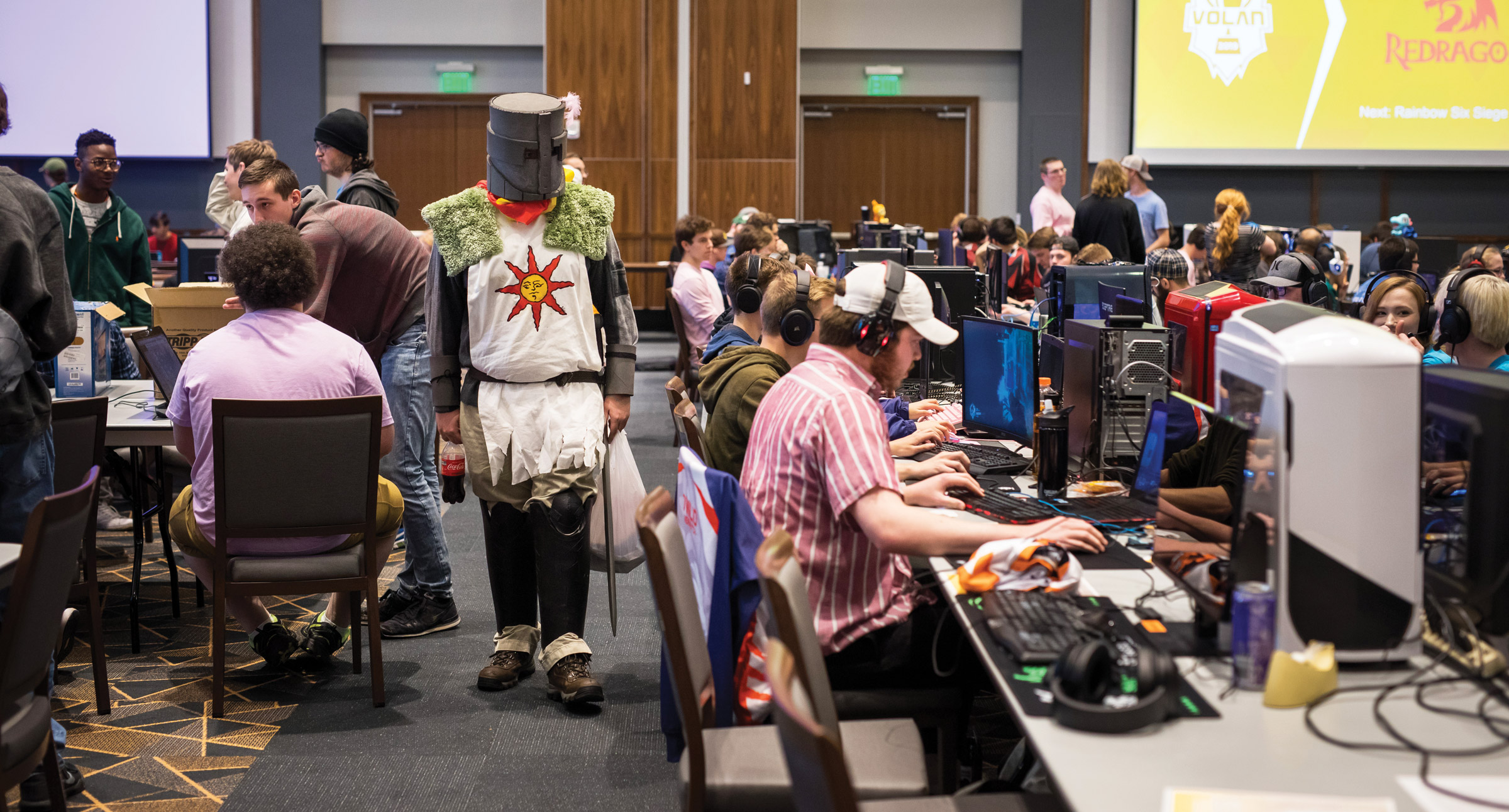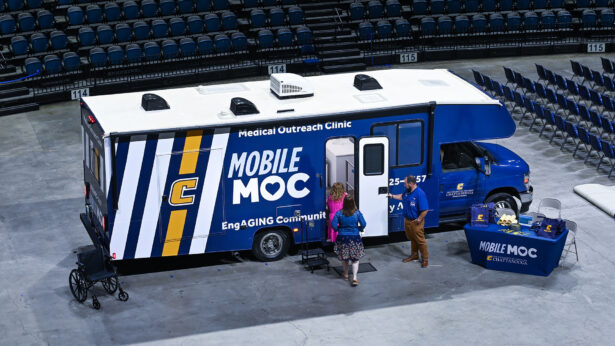By Haley Harbin
Michael Slandzicki received his first gaming console, a Nintendo 64, when he was 4 years old. He’s been hooked ever since.
The now 21-year-old senior studying marketing has seen his video gaming evolve into a passion for electronic sports, or esports.
He’s president of UT Knoxville’s Esports Club and co-founder of the collegiate league for the game PlayerUnknown’s Battlegrounds, for which he’s recruited teams from more than 100 colleges across the United States.
What Are Esports?
In some ways, esports prove similar to traditional athletics: teams, competitions, jerseys and sold-out arenas filled with thousands of screaming fans.
Just swap the field for a gaming console.
Esports has grown into a global phenomenon, with professional gamers competing in organized video game tournaments in front of live and streaming audiences. As of 2019, the worldwide esports industry had a market revenue of more than $1.1 billion and is expected to grow. The current international audience for esports is estimated at 454 million people, with the United States, South Korea and China leading the viewers.
Some colleges across the United States have developed esports programs—or, like UT, esports clubs—in which teams of students train to compete against other college teams.
Before coming to UT, Slandzicki had been active with his Nashville high school’s esports club. When he arrived in at UT Knoxville in 2015, he discovered the campus didn’t have an esports club. Slandzicki asked Jason Smethers, a data analyst for the College of Arts and Sciences and his first-year studies instructor, if he would help him start the organization and serve as club’s advisor.
“It’s pretty unique to the campus,” Slandzicki says. “There’s not really a spot elsewhere for people to just play video games.”
Since 2015, UT’s Esports Club has grown to include more than 270 registered members and hosts game nights every other Friday.
Friendly Competition
For some students, the Esports Club is a fun way to socialize with other gamers.
Although skill is not required for club membership, Slandzicki says students who want to compete need experience—and the club is a perfect place to practice.
“You have to be in the top 5 percent of the skill level for whatever game you compete in if you want to do really well,” Slandzicki says, estimating that he’s spent more than 2,000 hours practicing Rocket League.
The UT Knoxville Esports Club hosts 14 competitive teams that regularly compete in national collegiate gaming leagues, including Tespa, the American Video Game League and the Collegiate Star League. Each team specializes in a specific game such as League of Legends, Rocket League and Fortnite.
Finding His Niche
Although he came to UT as a computer-science major with plans of becoming a game developer, Slandzicki discovered he prefers the industry’s marketing side.
“I think marketing is really cool because, as you talk to people, they become more aware of esports,” Slandzicki says. “Then word gets around, and it has the potential to grow bigger and bigger.”



